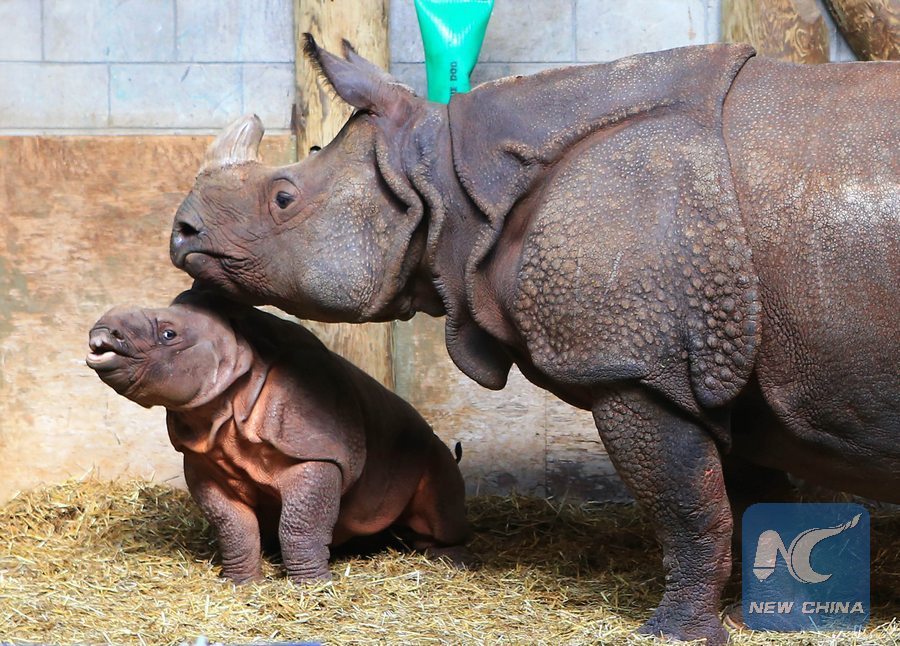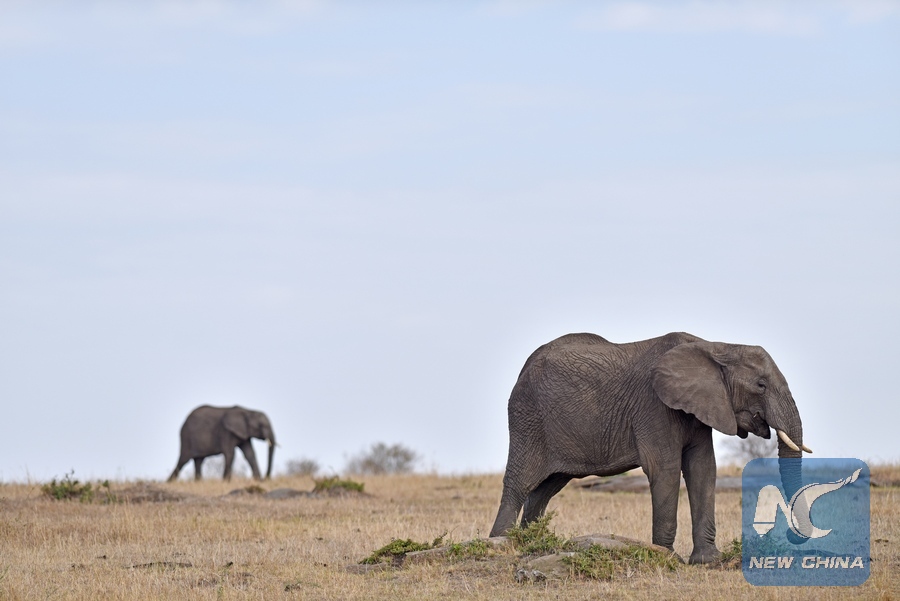
A two months old male Indian rhino calf (L) stays with his mother Ashakiran during Mother's Day at the Toronto Zoo in Toronto, Canada, May 8, 2016. (Xinhua/Zou Zheng)
NAIROBI, Jan. 22 (Xinhua) -- International police (Interpol) has launched a new project to identify and dismantle the organized crime networks making billions in illicit profits behind wildlife trafficking between Africa and Asia.
The project led by Interpol's Environmental Security programme will draw on the expertise of other specialized units and will focus on high profile traffickers in Asia sourcing wildlife from Africa.
"The project will provide a strengthened law enforcement response in source, transit and destination countries, particularly those linked to the illicit trade in ivory, rhinoceros horn and Asian big cat products," Interpol said in a statement received in Nairobi.
With environmental crime estimated to be worth up to 258 billion U.S. dollars and linked to other criminal activities including corruption, money laundering and firearms trafficking, the project led by Interpol's Environmental Security programme will draw on the expertise of other specialized units.
 Two 18-month old lion cubs are seen at the Antelope Park, in Gweru, Zimbabwe, Nov. 8, 2014. (Xinhua/Xu Lingui)
Two 18-month old lion cubs are seen at the Antelope Park, in Gweru, Zimbabwe, Nov. 8, 2014. (Xinhua/Xu Lingui)
"These include the Anti-Corruption and Financial crime unit, the Digital Forensics Lab for the extraction of data from seized equipment, the Firearms programme for weapons tracing and ballistics analysis and the Fugitive Investigations unit to assist countries locate and arrest wanted environmental criminals," the statement said.
A recent Interpol-UN Environment report showed 80 percent of countries consider environmental crime a national priority, with the majority saying new and more sophisticated criminal activities increasingly threaten peace and security.
Supported by the United States Agency for International Development (USAID) and in collaboration with the International Consortium on Combating Wildlife Crime (ICCWC), the Interpol initiative will draw on the intelligence gathered from existing projects including Wisdom, Predator and Scale.
"In addition to expanding the level of investigative cooperation between the involved countries, the project will also provide increased analytical support for activities both in the field and for online investigations," it said.

Elephants are seen at Maasai Mara National Reserve in Kenya, on Jan. 1, 2017. (Xinhua/Sun Ruibo)
According to Interpol, fisheries crime will also be targeted as part of the project.
"Due to the increasing value of fish as a commodity, the last decade has seen an escalation of transnational and organized criminal networks engaged in this type of crime," it said.
In addition to undermining the sustainability of marine resources, illegal fishing is also often linked to human trafficking with crews subjected to labour and human rights abuses, fraud in regulatory systems and corruption, damaging legitimate businesses and economies, it said.

